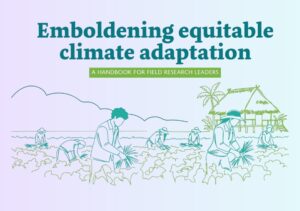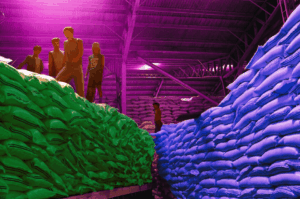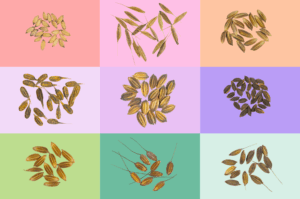Phka Rumduol, a variety of jasmine rice from Cambodia, was named World’s Best Rice for the fifth time at The Rice Trader World Rice Conference in Thailand.
Phka Rumduol, a top choice among international buyers, was developed and tested by the Cambodian Agricultural Research and Development Institute and released in 1999.
Read the story @ANN
More on Cambodia’s rice sector:
New CARDI director cites IRRI’s role in making Cambodia a rice-exporting country
Mr. Lor Bunna, the new CARDI director of the Cambodian Agricultural Research and Development Institute (CARDI), received a courtesy visit from Yurdi Yasmi, the Southeast Asia IRRI Representative.
“IRRI has supported Cambodia to be rice sufficient by increasing rice productivity,” Director Bunna said during the meeting. “Cambodia is now a rice-exporting country.”
IRRI and Cambodia have been partners in building a strong agricultural system in the country for more than 30 years. The partnership was formalized through a memorandum of understanding in 1986, but IRRI’s support to the country started much earlier.
Cambodia launches first national seed strategy during visit to IRRI
The Cambodian delegation, led by H.E. Minister Veng Sakhon of the Ministry of Agriculture, Forestry and Fisheries, visited IRRI Headquarters in the Philippines to explore advanced agricultural technologies and innovations, particularly in seed health and mechanized seed production. While there, they took the opportunity to co-launch with IRRI the seed strategy, which was crafted in consultation with scientists from the institute.
Reducing pesticides and increasing crop diversification offer ecological and economic benefits for farmers—a case study in Cambodian rice fields
Since the Green Revolution in the 1960s, rice agroecosystems in Southeast Asia are mostly associated with intensified rice monoculture. The trend of intensified rice production and increasing harvested areas is associated with increasing agrochemical inputs like fertilizers and pesticides. The importance of pesticides has dramatically increased in recent decades since many farmers have increased their pesticide use as they believe it is the only way to prevent pest outbreaks.
However, pesticides can be harmful not only to the targeted rice pests but also to the environment and human well-being, since pesticides are often the first choice for pest management. To improve the stated situation, habitat management as a form of biological control has increasingly gained interest.










